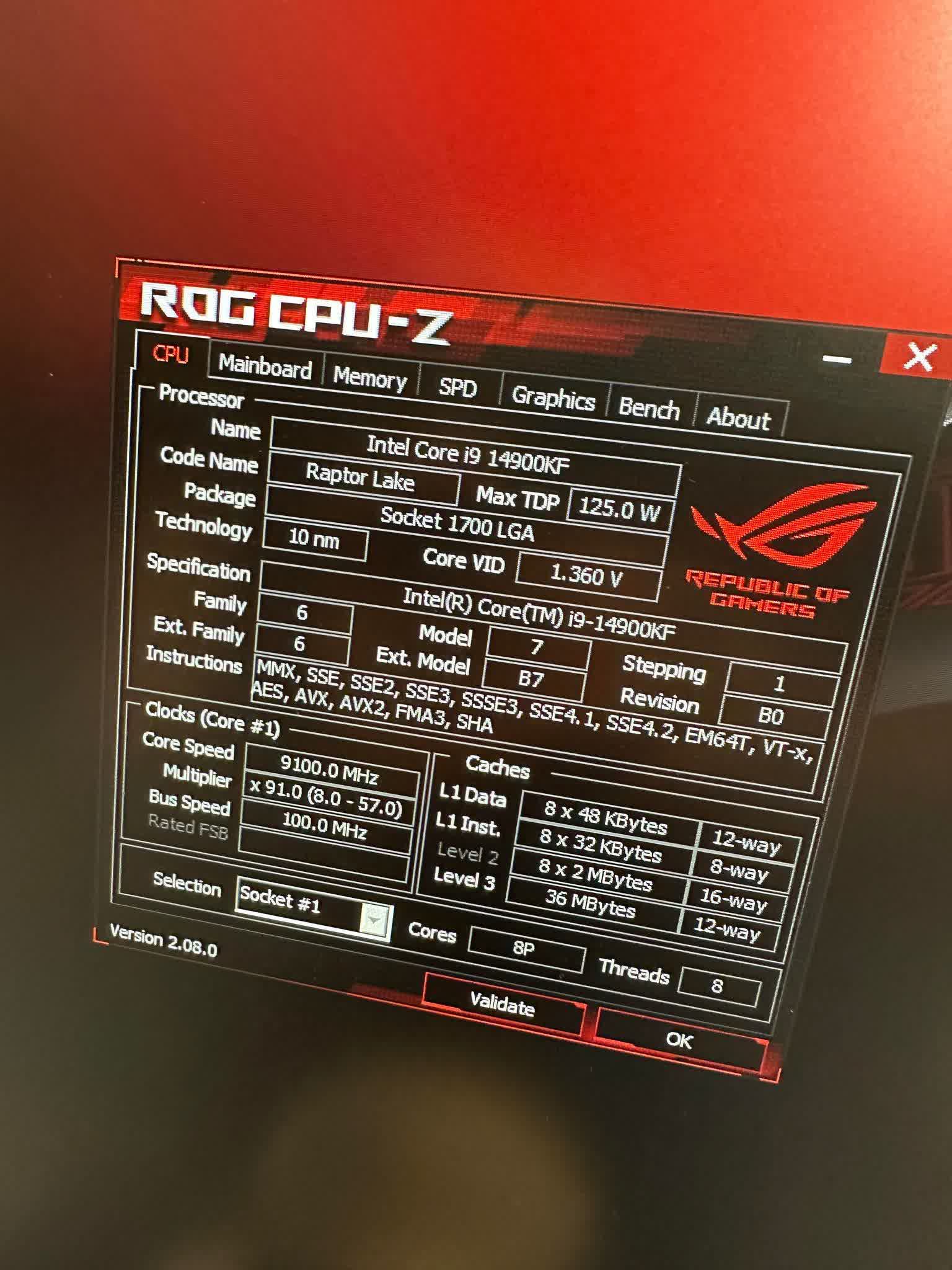What just happened? Intel's recently released 14th-generation Core processors are mostly a minor upgrade over their predecessors. Still, overclockers have proved that their performance gains are enough to set a new world record for desktop CPU frequency. A processor has only passed 9 GHz once before.
Mere days after the Raptor Lake Refresh launch, overclockers have used the lineup's flagship processor to set a new clock frequency world record. The team behind the project plans to push the CPU's limit a bit further.
Jon "Elmor" Sandström from ElmorLabs collaborated with Asus ROG to overclock an Intel Core i9-14900KF to an unprecedented 9.04 GHz, 50 percent beyond its standard 6 GHz boost clock. The effort took several attempts, and properly validating the results on the recordkeeping site CPU-Z presented a separate challenge.
While extreme overclocking is popularly associated with liquid nitrogen cooling, Elmor and Asus instead utilized liquid helium. The team nearly ran out before successfully confirming the new world record on CPU-Z.
Also read: Intel Core i9-14900K, i7-14700K and i5-14600K Review

Although the final validated result was 9,043.92 MHz, Skatterbencher, who collaborated on the project, claims they reached 9.1 GHz, but technical issues prevented the higher number from becoming official. The team will likely soon make future attempts to post a legitimate 9.1 GHz record.
According to Skatterbencher's history of CPU overclocking, the world record race stagnated for around a decade before Elmor began breaking new boundaries with recent Intel processors. An AMD FX-8350 achieved 8,793.33 MHz in 2012 – a record that stood until Elmor hit 8,812.85 MHz with an i9-13900K last October. He broke the 9 GHz barrier that December on the same CPU before slightly edging out his record on the Raptor Lake Refresh chip this week.
Intel launched the 14th-generation chips on Tuesday at the same price as the previous lineup, dispelling rumors of a hike. True to their name, the Raptor Lake Refresh processors are a refinement of Raptor Lake with estimated single-digit performance uplifts.
Users unwilling to give up their LGA 1700 socket motherboards could see the new CPUs as a relatively affordable upgrade. Upcoming generations like Arrow Lake and the laptop-focused Meteor Lake will require new systems, significantly overhauling Intel's design scheme and feature set with a chiplet-based orientation and integrated AI hardware. The company expects to release the two lineups in 2024.